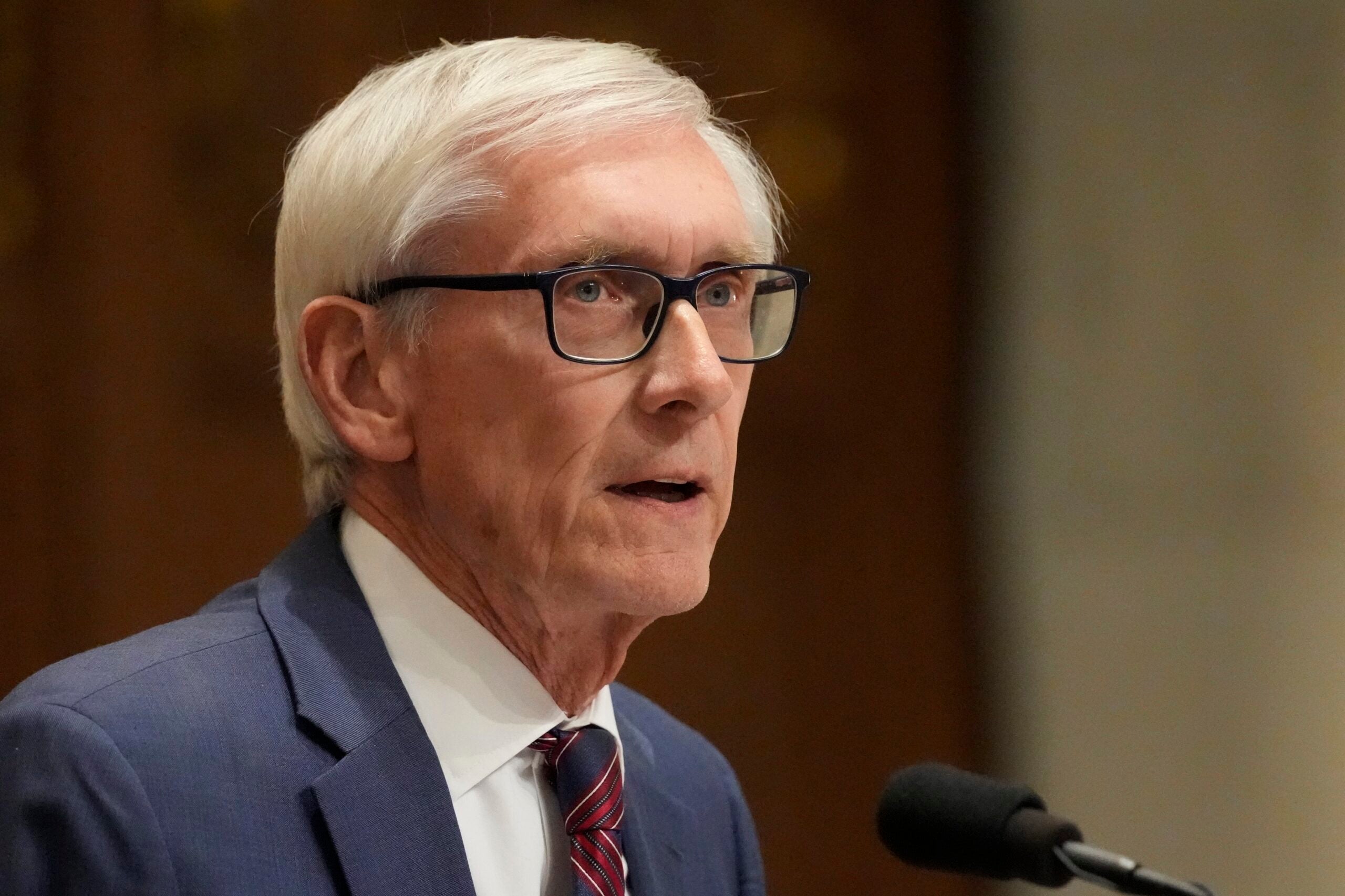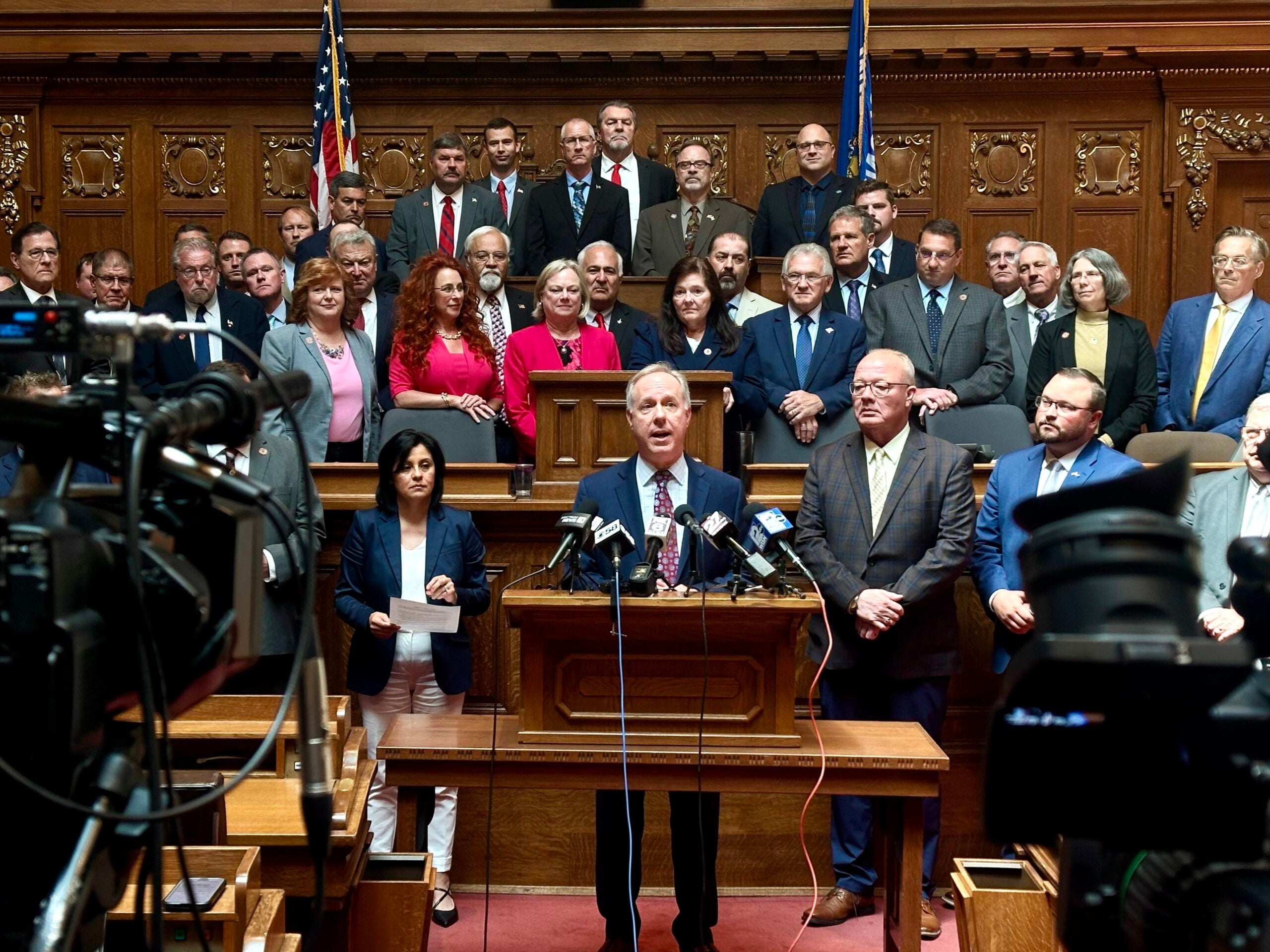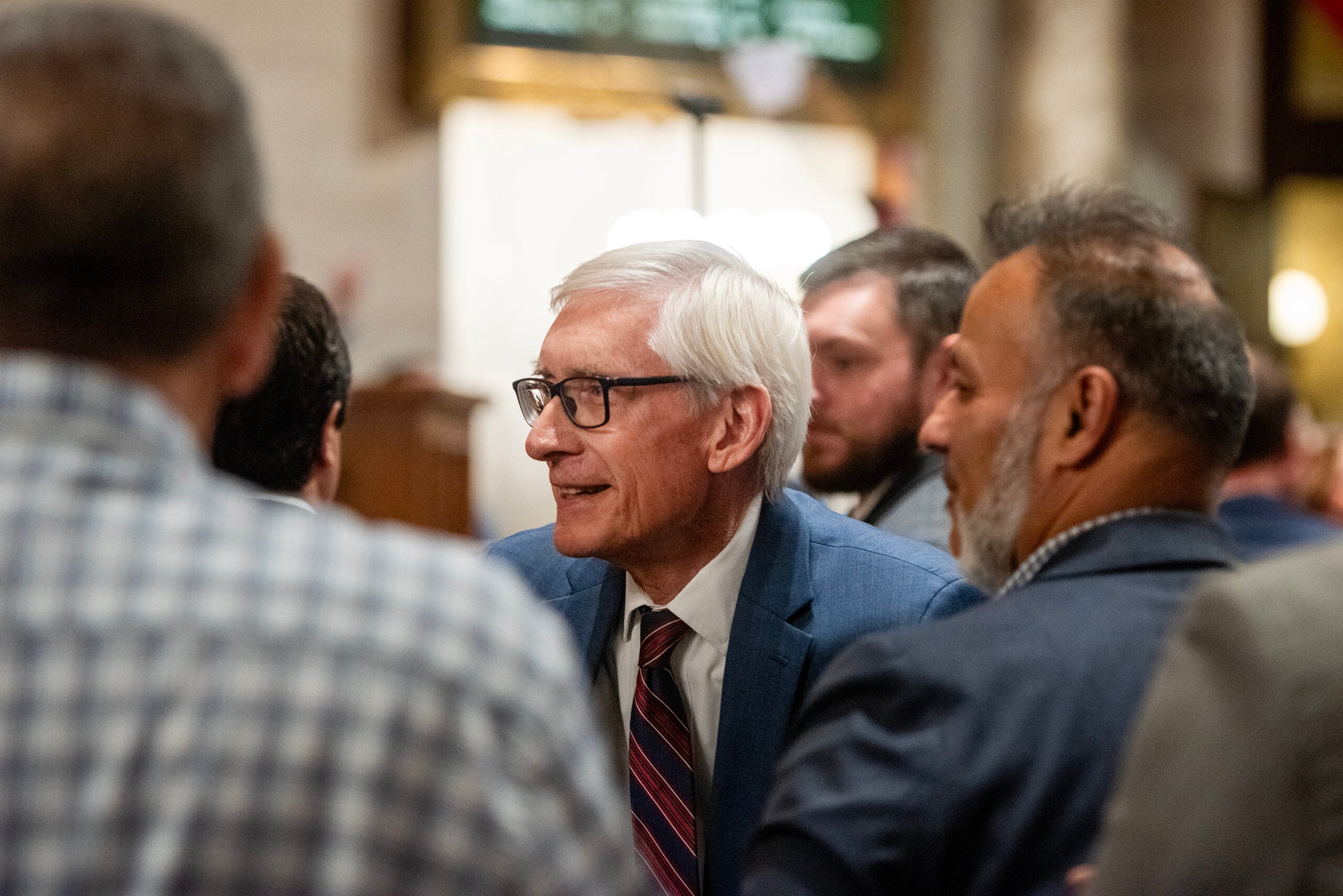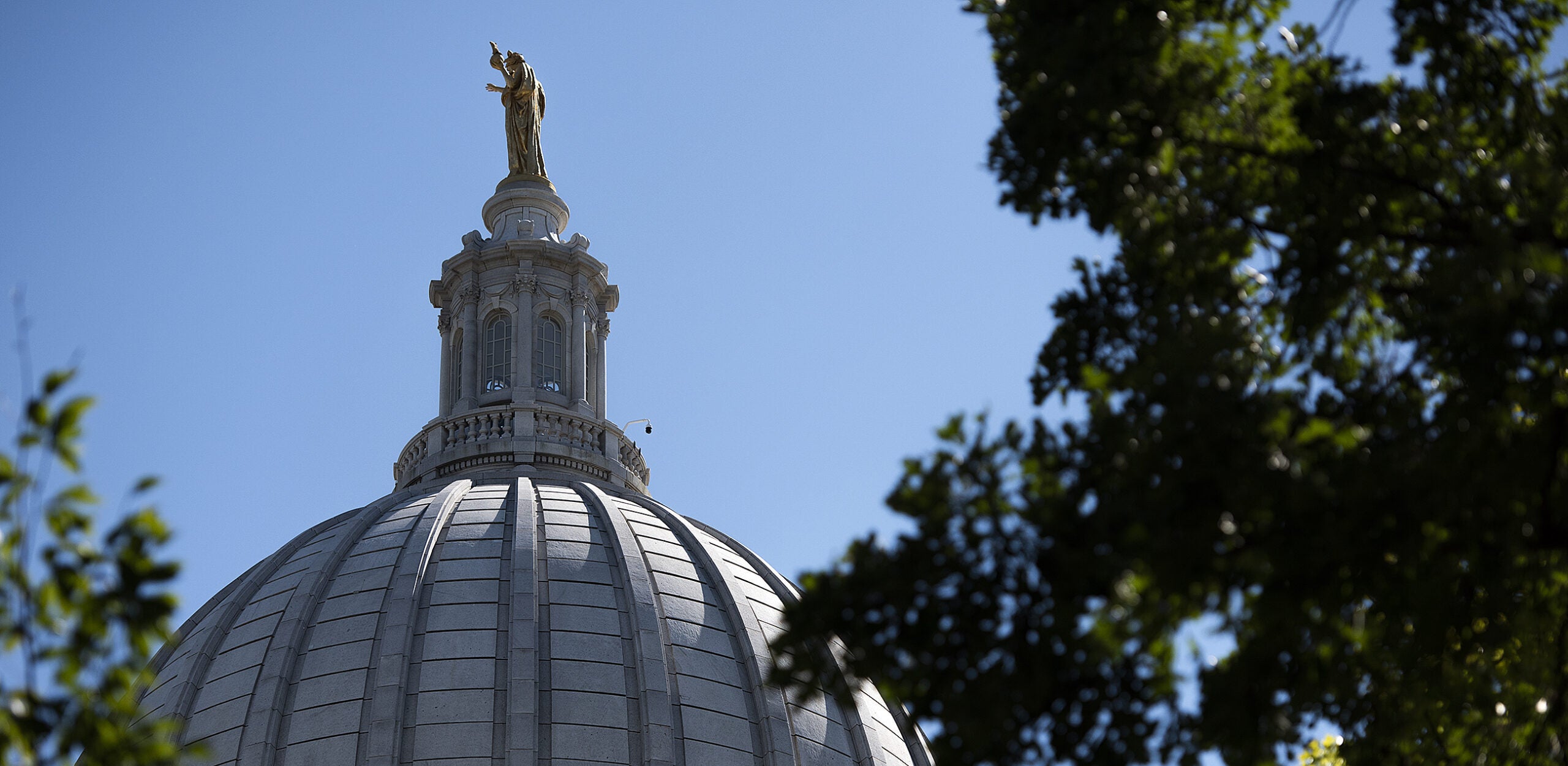The head of a key state agency was met with opposition by Republican lawmakers at a Thursday hearing about Democratic Gov. Tony Evers’ proposed budget.
Kathy Blumenfeld, the secretary-designee of the Department of Administration, described the Democratic governor’s proposal as an investment in the state’s future. Republican lawmakers pushed back on several initiatives outlined by Blumenfeld, including a work-from-home proposal for some state employees. They also questioned her about the overall size of spending in the $104 billion budget proposal, which Republicans have already vowed to rewrite entirely.
Blumenfeld’s testimony before the GOP-led Joint Finance Committee was delivered as a part of the launch of state budget season, in which lawmakers develop what will eventually become the basis of funding state programs for the next two years.
News with a little more humanity
WPR’s “Wisconsin Today” newsletter keeps you connected to the state you love without feeling overwhelmed. No paywall. No agenda. No corporate filter.
The Department of Administration — sometimes referred to as the “department of all,” because it touches so many aspects of Wisconsin government — helps to develop the budget. Blumenfeld was present to both defend her agency’s specific requests and the proposal as a whole.
The “Anywhere in Wisconsin” initiative, part of the department’s “Vision 2030” proposal, would allow some state workers to telework. That would take advantage of remote work infrastructure built out during the pandemic.
Blumenfeld said this would grow Wisconsin’s workforce and allow the state to sell off underused properties, saving the state hundreds of millions of dollars over time.
“It allows us to bring good-paying jobs to all 72 counties in the state and, ultimately, it’s going to help us make our workforce look like all the people of Wisconsin,” she said.
Rep. Mark Born, R-Beaver Dam, who chairs the committee, pushed back on this proposal, suggesting it would detract from productivity at a time when many Wisconsinites face bureaucratic delays due to staff shortages.
“I’m sure if you polled people and asked them, would you rather work from home, most of them are gonna say yes. I would rather work from home, too,” he said. “But there has to be still productivity, there still has to be accountability. We still have to do the work that the citizens of Wisconsin expect from these agencies, from these programs that they rely on.”
Speaking to reporters before the hearing, Born called the DOA’s requests for its own programs a microcosm of “reckless spending” in the governor’s proposed budget as a whole.
“Maybe that was a weird phrase to use, because there’s certainly nothing micro about this budget,” he added.
The concern over spending led to some testy exchanges during the hearing, as when Rep. Mary Felzkowski, R-Irma, asked about spending down the state surplus, which she said would leave Wisconsin in a hole. It is risky to spend so much in the face of national inflation, she argued.
“When times go bad, our Medicaid enrollment goes up, our unemployment goes up, costs go up to the state,” she said. “Don’t you think it would be more responsible to slow the spending, in anticipation of what we’re seeing on a federal level, and what we’re seeing as maybe a slowing economy?”
Blumenfeld said that investments made in this budget were likely to reap dividends in the future.
“On both sides, we have taken actions that are extraordinary for our state in terms of prudent fiscal management, and extraordinary in terms of investment in our state to make our state an economic engine for the future,” she said.
“This is just so irresponsible,” Felzkowski interjected.
Evers unveiled what he described as a “breakthrough budget” in Februrary, proposing about $104 billion in spending. The proposal makes use of a projected surplus that he has argued allows the state to pay off debts and lay a once-in-a-lifetime fiscal foundation.
Republicans, who control the state Legislature, have said they will rebuild the budget from scratch.
In the next several weeks, the Joint Finance Committee will also hold a series of public budget hearings around the state, where citizens can sign up to weigh in on the proposed budget.
The committee will then rewrite portions of the budget, before passing it off to state legislators for further revision.
Wisconsin Public Radio, © Copyright 2026, Board of Regents of the University of Wisconsin System and Wisconsin Educational Communications Board.





